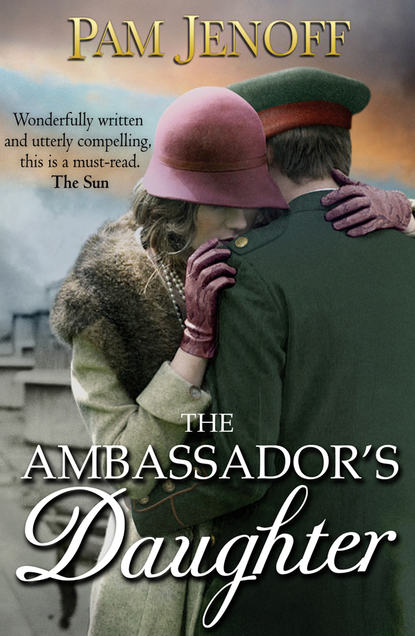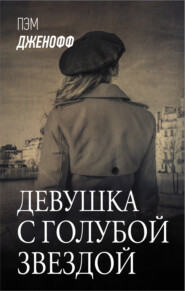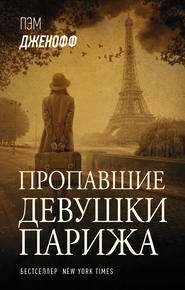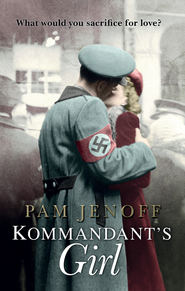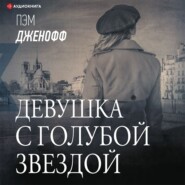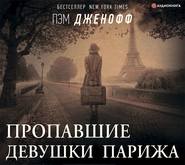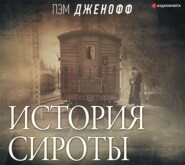По всем вопросам обращайтесь на: info@litportal.ru
(©) 2003-2024.
✖
The Ambassador's Daughter
Настройки чтения
Размер шрифта
Высота строк
Поля
A mixture of soap and wool wafts upward from the collar. “Now won’t you be cold?”
“I’m something of a polar bear actually. All of those nights on the North Sea.”
My eyes travel to the contour of his shoulder, dark against the lighted window. “Papa mentioned that there’s a trip to the battlefields scheduled for Sunday. Are you going?”
“Not if I can help it. I’ve spent the past four years on a battlefield of another sort. I’d like to see them, of course, and pay respects, but on my own, not from the window of a motor coach. I came here to work, not sightsee.”
“I suppose you won’t be going into Paris for the plenary session tomorrow, either?”
He shook his head. “We weren’t asked.” How odd, to be summoned all of this distance, only to be sequestered in a hotel, excluded from the very meetings for which you were invited. But then he forces a smile. “It’s no matter. So much better to have the time to work and not be shut up in stuffy proceedings all day.”
“True. What are you working on?” His eyes widen and I wonder if he minds the question.
“It’s quite dry,” he says apologetically. He is not offended, just surprised that I might take an interest. “I’m the delegation’s military officer and I’m studying plans and proposals as to what the treaty might look at, reading up on what the French and British experts are advocating in order to develop a counter position.” He continues, “There’s going to be a whole new world, a way for nations to coexist and to form strong alliances that will ensure we never face such destruction of man like that again.” His shoulders straighten. “I can be part of that, I think, by helping the navy to find its place. It’s slow going. Not the technical parts—I’m familiar with all of the engineering concepts from the ship. But languages were never my strong point and the delegation can’t spare a translator outside of the sessions.”
“I can help you,” I blurt out, without meaning to. “My French and English are quite good. I’ve got no technical training but with the aid of a dictionary I could muddle through.”
He looks at me dubiously. “It’s tremendously dull, lots of engineering reports.”
“I studied maths and science through the progymnasium level,” I reply. His jaw drops slightly, making his lips even more full. “I know it isn’t the typical curriculum for a girl,” I add, my words flowing more easily than usual. Back home girls are typically schooled in the gentle arts of music and literature at the high school level. But I had gravitated naturally toward the sciences and Papa had let my curiosity direct my studies.
“There’s nothing to be paid for it.”
“That’s fine.”
He coughs slightly. “Then why would you want to?”
“For the chance to do something—” I fumble for the right words, replaying my talks with Krysia “—meaningful. Real.” Because I’m sitting here in the middle of the world being formed, I add silently, playing at dinner parties and treasure hunts.
“Fine,” he acquiesces. For a moment I am annoyed—I’m trying to help him, but it sounds as if he is doing me a favor. “It’s quite late tonight but if you’d like to come by tomorrow evening at eight, we can work after the delegation retires. You’ll need clearance, of course, but that shouldn’t be hard to get with your father’s credentials.”
“So we’re agreed.”
“Ja. If …” he adds, “your father approves.”
I bristle and open my mouth to tell him that I am an adult and my own woman. But I can tell by his tone that it is not subject to debate, and that he will not cross another member of the delegation. “I’m sure it will be fine. I will see you tomorrow.” I stand and hand him his coat. “Thank you for the shoe, and the tea.” He stands. I wait for him to offer to escort me home, but he does not.
Back at the apartment, Papa is hunched over some papers in the study, reading so intensely he does not hear me come in. Smoke curls upward from his pipe, giving off a sickly smell. Seeing me, his brow furrows. “Is something amiss? I thought you were with Celia.”
“I was. I came home. Are you working?”
He shakes his head. “Just composing a cable to Uncle Walter.” I worry sometimes that Papa reports back to his brother-in-law too much, as if beholden to a superior. But Uncle Walter is just curious, a child being kept from the adults’ table, eager for every detail he is missing, as well as an assessment of how the Germans will fare. He has always imagined himself a political thinker. I suspect that in reality he is just an excellent prognosticator of what is to come, and he sorely needs details to do that.
“Papa,” I begin tentatively.
“Ja, liebchen?” He looks up and smiles. My father, an absentminded academic, can fairly be accused of spending the better part of life in a hazy bubble of his own thoughts. But he has always had a way of knowing when my tone was serious and required his actual focus and attention.
Which was not the effect I am going for here when I was hoping to pass this by him before he ever had the chance to focus on it. “I’ve been offered an opportunity to do some work.” He raises an eyebrow, and I continue. “Captain Richwalder from the delegation, you know him?”
“The young military officer. We met earlier.”
“He needs someone to help him with translations. Please, Papa, I’m just so terribly bored.” I don’t tell him that the work will need to happen in the evening or in the library of the hotel. “I just want to help.”
He rubs his chin. “I see no harm in it. It will be good for your linguistic skills.” He turns back to his papers.
Dismissed, I walk to my room. Across the road, the massive expanse of the palace grounds, trees and fountains are shrouded in darkness. I press my head against the window, craning my neck to glimpse the hotel. The light in the library still burns yellow on the first floor and I imagine Captain Richwalder hunched over his papers. I wonder what the work will be like. Will my language skills be sufficient? Remembering his imposing gaze, I shiver. Then, I turn off the light and climb into bed, anticipating with excitement and more than a little dread the day that is to come.
5
It is just shy of eight o’clock and the lamps glow behind the curtains at the hotel as I approach. I knock and a few seconds later the door opens. Captain Richwalder wears no jacket this evening, but his dress shirt is pressed crisply, the short hair above his ears still damp from washing. “Thank you for being prompt,” he says, sounding as though used to people being otherwise. I had, in fact, loitered a good twenty minutes at our apartment, not wanting to arrive too early, checking my reflection with more care than I otherwise would have to make sure I look capable. My clothes are simple, a starched cream blouse with a scalloped collar and a navy skirt a shade longer than is fashionable these days.
Taking in his stiff, formal demeanor, I am suddenly uneasy. What if he is difficult to work for, even unkind? Though I volunteered to do this and am not receiving pay, Papa will expect me to honor the commitment I’ve made and see the job through.
Captain Richwalder leads me through the lobby of the hotel, which is nicer than I might have expected from the drab exterior. The maroon curtains are just a bit faded and the chandelier overhead is every bit as elaborate as the one in our Paris hotel. He opens the door to the study. “Please make yourself at home. I’ll just be a moment.” As he closes the door behind him, I remove my coat. The library is modest in size, no bigger than our parlor down the street, but pleasant, with soft, overstuffed chairs and book-filled shelves that climb to the ceiling. The air carries the same damp, musty smell that permeates most of the town.
Captain Richwalder returns a moment later with two cups of tea and sets them down on the low table. “It’s a bit warmer now. The weather, I mean.” His attempt to make small talk is awkward, simple conversation strange on his tongue.
“Indeed.” I smooth my hair, which is pulled back in a loose, low knot. Then I decide to be direct. “So what is it that you need me to do?”
His face relaxes at being given permission to turn to work and he motions for me to follow him over to the desk in the corner, where he holds the chair out for me to sit. “There are a number of military matters related to the peace treaty that are to be proposed, and I’ve been asked to work on those, not surprisingly, that involve the navy. The Imperial Navy is one of the finest in the world,” he adds, unable to keep a note of pride from his voice. Or was, I cannot help but think. “And I believe there’s a real role for the navy as a peacekeeper in the new world order.”
His suggestion is the first I’ve heard of such an idea. “Do you think that’s what the Allies have in mind?”
“Surely some sort of partnership. Remember what Wilson said at the cease-fire, peace without blame.” It was true that in the desperate efforts to stop the fighting, Wilson had made such hasty promises. But the rhetoric since we’ve been in Paris has been far more pointed.
He continues. “So I believe such an arrangement is possible. But we’ve got to make the case.” He is animated now, gesturing broadly with his hands to illustrate his point. “There’s a vast amount of correspondence about the role that naval fleets might play, drawn up before and during the war. Synthesizing it will give a sense of what the Big Four are thinking and help to frame any proposal. But we have to work quickly.”
I nod. The other nations have been meeting for close to six months, inviting the German delegation only at the final hour. Captain Richwalder’s idea makes sense, but the window for providing any sort of input and making a difference is slim. “I would have started earlier, of course, but I was given access to the materials just days before leaving Berlin,” he adds.
“Of course.”
“I’ve prioritized the documents most in need of translation.” He spreads the papers out on the desk before me. I would have expected the hands of a soldier, thick and crude. But his fingers are long, more artist than warrior, delicate half-moons at the cuticle.
He retreats to one of the chairs by the low table, which is piled high with papers, and I turn to the first document. It is a report on the structure of the smaller vessel fleets, and though once or twice I consult the dictionary I brought with me, to be certain of the exact words, it is not altogether difficult. My translation settles into an easy rhythm. Working alongside Captain Richwalder is not so different than reading in the study with Papa. When I’ve finished the first page, I glance up, studying Captain Richwalder out of the corner of my eye. He is as imposing as he’d appeared at the arrival ceremony, with strong features seemingly etched from granite. But close up, there are little things I can see now—long eyelashes, almost impossibly so for a man, a bottom lip much fuller than the top. Faint, end-of-day stubble covers his cheeks.
He looks up unexpectedly. “Do you need something?”
“No.” Heat rises from my neck as I fumble to find an excuse for my staring. “I was just wondering, how are things in Berlin?”
“You’ve not been back?”
“Not since the start of the war. We were in England.”
“England?”
“Yes, Papa was on a teaching fellowship.” My own explanation sounds uneasy. At the time, our departure had been too rushed to ask. But afterward I had questioned it silently myself: Why had we gone to an enemy country right after the war broke out? Papa could have postponed the fellowship. But there had been an urgency to our leaving. Had he been worried for our safety? The war never reached German soil, and surely at Uncle Walter’s palatial mansion in the countryside we would have been fine. Had he been afraid of something else?
Captain Richwalder shakes his head. “Very bad, I’m afraid,” he says, returning to my original question. “The Social Democrats nominally hold power in Berlin, but the south, Bavaria especially, has become a hotbed of communist activity. There are rumors that the government may have to retake Munich by force to restore order.”





